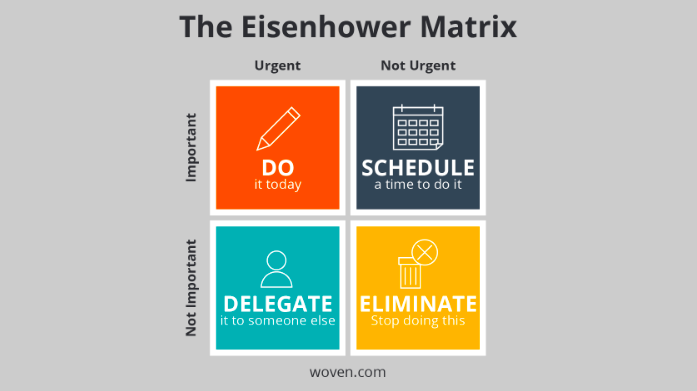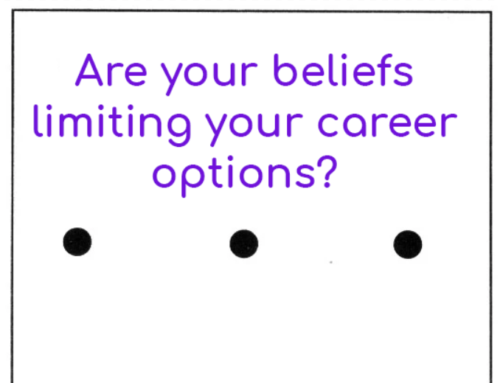It’s beginning of February already, how time flies… did last month feel like you got to the end of the day, and that you were busy yet accomplished so little?
This unproductive busyness is a feeling that used to be very familiar to me, and if you feel like this too, you know it’s extremely frustrating.
I’m happy to say that it is possible to get rid of this feeling once and for all. You do this by learning to recognize which activities support you in living more intentionally, and which ones are mostly a waste of your time.
This short but impactful story called ‘Big Rocks’ illustrates this beautifully, and I’m excited to explain to you the framework deduced from it, which I used to break out of this ‘busy yet unproductive’ cycle.
Imagine your life being like a big mason jar, filled with lots of sand, pebbles and a few big rocks.
Then imagine the big rocks representing your priorities in life; perhaps that’s family, doing work that feels worthwhile, or maybe learning another language.
The pebbles and sand represent the small daily tasks we fill our lives with; replying to emails, checking our phones for updates, and assisting others with ad hoc tasks. Often these are things we do before we take the time to think.
Even without you actively doing anything, as time goes by, pebbles and sand keep pouring into the jar. Before you know it, the jar is filled to the brim, and there’s no room for anything else.
Least of all there’s room for another big rock.
What’s the point of the story?
If you want to have space for the big rocks that represent what’s most important to you, you need to a) be clear on what they are, and b) carve out dedicated time and space for them. Otherwise the sand and pebbles will fill out all your time, and cause you to feel lethargic and unproductive at the end of most days.
So what’s the framework I promised could help you?
Inspired by late President Eisenhower, it is also referred to as the Urgent-Important Matrix.
It helps you see clearly which tasks are truly important, which ones can be delegated, and which ones should be minimised or completely avoided.
Most people have a natural tendency to focus on urgent but unimportant activities, and this is a major thinking flaw which prevents us from focusing on worthwhile, important activities that would make us feel happy and accomplished in the long-term.
Look at this matrix with 4 quadrants:

This is what you should do:
Step 1
Sit down and take stock of everything on your plate; use your calendar, your to do list plus whatever should be on your longterm to do list but keeps being postponed. The latter is likely a ‘Big Rock’ – something that would really benefit you long term but that you never get around to doing.
Step 2
Ask yourself:
Which 3 things are most important to me in life? This includes career, personal and self development.
Which one in particular have you been neglecting?
Here’s the key: these important, but not urgent activities have to be scheduled into your diary; no compromises. Put them in at regular times, when you generally feel most alert and refreshed. For me personally this is first thing in the morning, before I start checking emails and the day just runs away from me.
This ‘important but not urgent’ quadrant is the one that will bring you the biggest sense of joy and fulfilment, but ironically it’s the one that most people spend the least time in. Why? Well, because it’s not urgent, it’s easy to ignore it, and sadly it’s human nature to focus on what’s right in front of us. Beeping and blinking incoming emails and notifications don’t help, so switch these off if at all possible.
Step 3
Now ask yourself: What are my biggest time wasters?
Take a critical look at the activities and bad habits that suck your time, but give you little in return. This could be receiving too many irrelevant newsletters, notifications on emails and social media, or doing the work that other people really should be doing.
Be ruthless and either cut them, reduce them or delegate them. It’s always good to learn from mistakes, so remind yourself how you got to this state in the first place – learning how and why you agree to certain things helps you change your behaviour in the future. You’re not perfect, and we’re all on a never ending learning journey.
So, to summarise: sometimes we have no other choice than to spend time doing things that are important and urgent – an important last-minute client request or a fire in the kitchen. But if you’re completely honest with yourself, many of the things you do are probably not that urgent, yet you treat them as such, and as a result they get priority over the lesser urgent but truly important things.
I want you to realise that there are more urgent tasks than you could ever get done in one day anyway, and that they tend to get in the way of the truly important stuff.
So I’ll leave you to have a think about which 3 things you can commit to doing differently, in order to spend more time in the ‘important but not urgent’ quadrant.
Which 3 actions would have the biggest impact on living more intentionally?






Leave A Comment